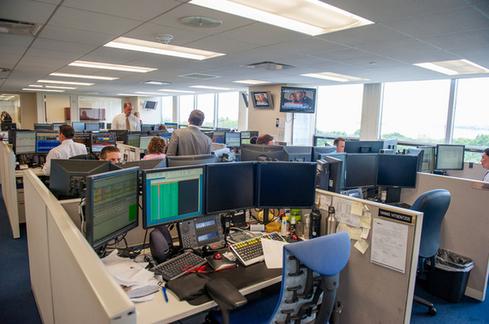12:52 PM
Justice Department Works On New Model To Prosecute Banks
Regulators and prosecutors have been long criticized for failing to hold financial institutions accountable for their mistakes or their outright wrongdoing. This could finally be set to change, if the Justice Department has its way.
In the past, authorities have avoided being too harsh on banks, fearing that financial institutions could suffer irreparable damage as a result of punishment, which would in turn jeopardize the broader economy.
[ Regrets? Some Senators Have a Few .]
As a result, the government has largely imposed ineffective fines and regulation, without holding banks accountable for their misdeeds. A few recent examples: HSBC last year avoided charges in a massive money laundering case out of concern that an indictment could put the bank out of business, according to the New York Times.
Prosecutors also considered filing criminal charges against an arm of Barclays, the paper reports, but ultimately did not because of the bank’s vital importance to the financial system.
But now, the government is adopting a new strategy to rein in wrongdoing, and pushing for guilty pleas in financial fraud cases. As a result, lawyers for several big banks are now urging banks to fire employees suspected of wrongdoing in the hope of appeasing authorities, the New York Times says.
It’s a long road ahead. So far, the government’s new drive has had some underwhelming results to say the least. The Justice Department to date has extracted a guilty plea only out of the remote subsidiaries of big foreign banks – namely the Japanese subsidiaries of UBS and the Royal Bank of Scotland, who were accused of manipulating interest rates to boost profits. The Japanese subsidiaries pleaded guilty to felony wire fraud, and their parent companies suffered reputational damage, but not much else. Still, the Times notes that by going after a subsidiary, prosecutors “shield the parent company from losing its license, but still send a warning to the financial industry.”
In the meantime, it will remain to be seen whether opposition by regulators, who are anxious of doing anything to banks that might harm the economy, as well as lobbying by Wall Street, will thwart the govenrment’s efforts.
But it is clear that banks have been getting off too easily. Hopefully, by ramping up efforts to make financial institutions accountable for their executives’ wrongdoing, there will be less fraud and less market manipulation, which ultimately can only be a good thing for the capital markets and the economy at large.
Melanie Rodier has worked as a print and broadcast journalist for over 10 years, covering business and finance, general news, and film trade news. Prior to joining Wall Street & Technology in April 2007, Melanie lived in Paris, where she worked for the International Herald ... View Full Bio
























